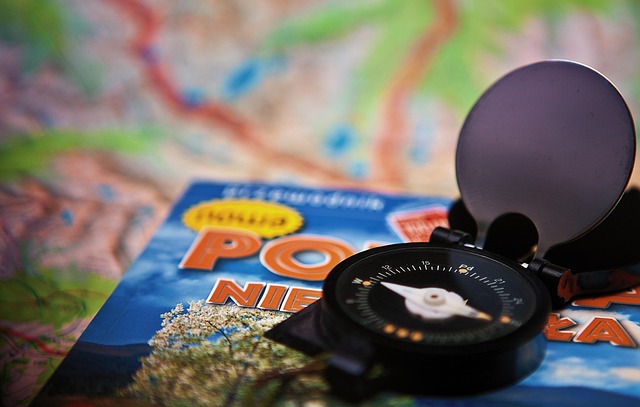How to Live the Luxury Travel Lifestyle on a Budget

Traveling in luxury doesn’t have to mean breaking the bank. While high-end vacations often come with hefty price tags, there are plenty of ways to enjoy the finer things in life without draining your savings. With smart planning, savvy strategies, and a bit of creativity, you can live the luxury travel lifestyle on a budget. In this article, we’ll explore practical tips and tricks to help you experience opulence without overspending.
Why Choose Luxury Travel on a Budget?
Luxury travel is about more than just expensive accommodations or designer shopping—it’s about creating unforgettable experiences, indulging in comfort, and immersing yourself in unique adventures. By adopting a budget-conscious approach, you can still enjoy the essence of luxury while staying financially responsible. Here’s how:
- Affordable Comfort : Experience premium amenities without paying top dollar.
- Unique Experiences : Focus on meaningful activities rather than material extravagance.
- Value Over Cost : Prioritize quality over quantity when spending money.
- Creative Solutions : Leverage deals, discounts, and insider knowledge to maximize value.
Now, let’s dive into actionable strategies to make luxury travel accessible on any budget.
1. Choose Off-Peak Seasons for Travel
One of the easiest ways to save money while enjoying luxury is to travel during off-peak seasons. Hotels, flights, and attractions often offer significant discounts during these times, allowing you to access premium services at a fraction of the cost.
Tips:
- Research Shoulder Seasons : These periods between peak and low seasons typically offer great weather and lower prices.
- Avoid Holidays : Steer clear of major holidays like Christmas, New Year’s, and school breaks when demand (and prices) soar.
- Negotiate Rates : Some hotels may be willing to offer additional perks or upgrades during slower periods.
Example:
A five-star resort in Bali might charge $500 per night during peak season but drop its rates to $250 per night during the rainy season—without compromising on service or amenities.
2. Stay in Boutique Hotels or Luxury Hostels
While chain hotels dominate the hospitality industry, boutique hotels and luxury hostels provide a more intimate and personalized experience at a reduced cost.
Benefits:
- Boutique Hotels : Smaller properties often feature stylish decor, exceptional service, and unique themes that rival larger chains.
- Luxury Hostels : Modern hostels now cater to travelers seeking comfort, offering private rooms, en-suite bathrooms, and communal spaces designed for socializing.
- Local Charm : These accommodations frequently reflect the culture and character of their location, enhancing your overall experience.
Tip:
Use platforms like Booking.com or Hostelworld to filter searches by amenities such as free breakfast, pool access, or spa facilities.
3. Leverage Loyalty Programs and Discounts
Membership programs and discounts can unlock substantial savings on flights, hotels, car rentals, and even dining.
Strategies:
- Airline Miles : Accumulate frequent flyer points through credit cards or past travels to redeem free flights or upgrades.
- Hotel Rewards : Sign up for loyalty programs to earn points toward free stays or room upgrades.
- Student or Senior Discounts : Many companies offer reduced rates for students, seniors, military personnel, or teachers.
- Group Deals : Websites like Groupon or LivingSocial occasionally list discounted packages for luxury experiences.
Pro Tip:
Combine multiple discounts—for example, use a promo code alongside your loyalty membership for maximum savings.
4. Opt for All-Inclusive Resorts
All-inclusive resorts bundle accommodations, meals, drinks, and activities into one upfront price, making it easier to manage expenses and avoid hidden costs.
Advantages:
- Predictable Costs : You won’t face unexpected charges for extras like food, beverages, or entertainment.
- Premium Amenities : Many all-inclusives include access to spas, golf courses, water sports, and nightly performances.
- Family-Friendly Options : Some resorts cater specifically to families, providing kids’ clubs and babysitting services.
Recommendation:
Look for smaller, boutique-style all-inclusives instead of large chain resorts for a more exclusive feel.
5. Indulge in Local Cuisine Over Tourist Traps
Fine dining doesn’t always require Michelin stars. Exploring local markets, street food stalls, and family-owned restaurants can deliver authentic flavors and luxurious experiences at affordable prices.
Ideas:
- Food Tours : Join guided tours to sample regional specialties while learning about culinary traditions.
- Cooking Classes : Learn to prepare traditional dishes from local chefs—a hands-on way to immerse yourself in the culture.
- Happy Hours : Take advantage of discounted menus at upscale bars and restaurants during happy hour.
Example:
In Thailand, a street vendor’s pad thai could taste better (and cost far less) than a meal at an overpriced tourist restaurant.
6. Upgrade Your Experience Through Timing
Timing plays a crucial role in securing upgrades and complimentary perks. Airlines and hotels often reward polite requests made at strategic moments.
Tactics:
- Flight Upgrades : Ask politely at check-in if any business-class seats are available for a small fee or complimentary upgrade.
- Room Upgrades : Request an upgrade upon arrival, especially if the hotel isn’t fully booked.
- Late Check-Outs : Extend your stay by asking for a late checkout, which many hotels will grant if occupancy allows.
Bonus Tip:
Build rapport with staff by being friendly and respectful—they’re more likely to go the extra mile for someone who appreciates their efforts.
7. Explore Free or Low-Cost Activities
Luxury isn’t limited to what you spend—it’s also about enriching your journey with memorable experiences. Many cities and destinations offer free or low-cost activities that feel indulgent.
Suggestions:
- Nature Walks : Hike scenic trails, visit botanical gardens, or relax on pristine beaches.
- Cultural Events : Attend free museum days, art exhibits, or live performances.
- Sunset Views : Find a picturesque spot to watch the sunset—a simple yet luxurious pleasure.
Example:
In Paris, strolling along the Seine River or visiting Montmartre offers breathtaking views without costing a dime.
8. Pack Smart to Avoid Extra Fees
Packing efficiently not only saves money but also enhances convenience, allowing you to focus on enjoying your trip.
Packing Tips:
- Carry-On Only : Avoid checked baggage fees by packing light and using carry-on luggage.
- Travel-Sized Toiletries : Bring your own toiletries to skip expensive minibar items in hotels.
- Versatile Clothing : Pack versatile pieces that can be mixed and matched for various occasions.
Additional Savings:
Bring a reusable water bottle to refill instead of buying bottled water, and pack snacks for long journeys to avoid airport markups.
9. Rent Instead of Buy
For certain luxuries, renting can be a cost-effective alternative to purchasing outright.
Examples:
- Designer Clothes : Rent high-end outfits for special events through services like Rent the Runway .
- Luxury Cars : Hire a chauffeur-driven vehicle for a day to explore a city in style.
- Vacation Homes : Use platforms like Airbnb Luxe to rent opulent villas or apartments instead of booking pricey hotels.
Cost Comparison:
Renting a designer handbag for $50 is much cheaper than buying one for thousands of dollars.
10. Embrace Slow Travel
Instead of rushing through multiple destinations, slow travel encourages deeper connections with fewer places, reducing transportation costs and increasing satisfaction.
Benefits:
- Longer Stays : Booking extended stays often qualifies you for discounted nightly rates.
- Local Insights : Spend time getting to know the area, discovering hidden gems that most tourists miss.
- Reduced Stress : A relaxed pace allows you to savor each moment rather than constantly moving.
Example:
Spend two weeks exploring Tuscany instead of hopping between three Italian regions—you’ll save on transport and gain richer experiences.



